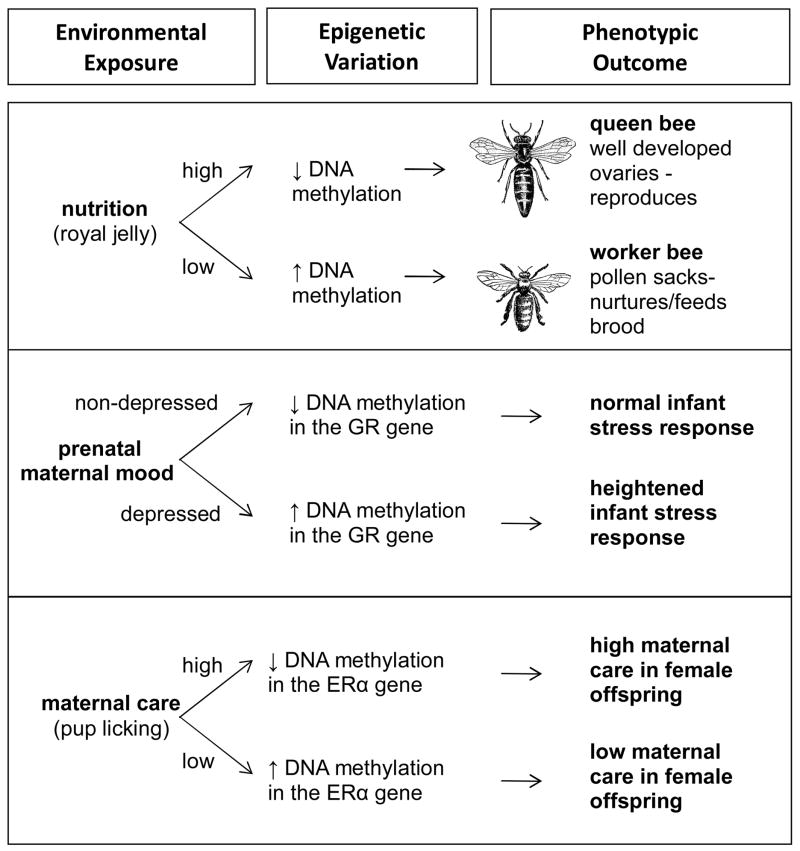Figure 2.
Phenotypic outcomes associated with environmentally induced epigenetic variation across species. In honeybees (top panel), variation in the amount of royal jelly experienced in early development leads to changes in DNA methylation and phenotypic variation giving rise to caste differences. In humans (middle panel), maternal depression during pregnancy is associated with increased methylation of the glucocorticoid receptor (GR) gene in fetal cord blood leading to increased stress reactivity in infants born to depressed mothers. In rats (bottom panel), high maternal care experienced by female offspring in infancy leads to decreased DNA methylation within the estrogen receptor (ERα) gene, leading to increased ERα gene expression and elevated maternal behavior in adulthood.

